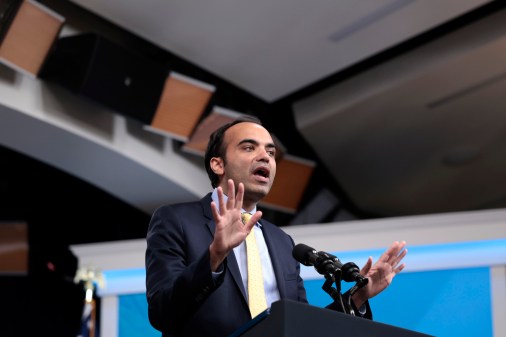Sen. Dianne Feinstein leaves intelligence committee, shaking up future of encryption law

It’s the end of an era on the Senate Select Committee on Intelligence and potentially the final death knell for the most widely criticized anti-encryption bill to hit Congress in the last year.
Sen.Dianne Feinstein, D-Calif., who has been the committee’s top Democrat since 2009, is leaving to become the first female ranking member of the Senate Judiciary Committee. That body will see extensive action around the Supreme Court nomination President-elect Donald Trump is expected to take up quickly when he enters office.
Feinstein was one of the loudest and most controversial voices in U.S. government on the issue of encryption. Despite being a Californian, she often found herself at odds with the state’s massive tech hubs on this issue. Alongside Sen. Richard Burr, R-N.C., the Intelligence Committee’s ranking Republican, Feinstein pushed a bill meant to “pierce” through encryption. Previously, Feinstein voted for millions in dollars of funding for the development of strong encryption technology, exemplifying the dizzying turn several high profile figures in the U.S. government took when strong encryption technology became mainstream.
The encryption debate dominated headlines and Senate hearings for months at a time beginning late last year and stretching into 2016. When the FBI couldn’t access data on the iPhone of a San Bernardino shooter, the issue was propelled to the presidential campaign trail. Then-candidate Trump proposed, off the cuff, boycotting Apple until they provided access to the phone. Apple steadfastly refused to compromise the security on their own devices and the Bureau ended up contracting out a solution to a third party.
The issue faded into the background while the 2016 presidential campaign hit its crescendo but FBI Director James Comey and others have repeatedly promised it will be back in early 2017.
Sen. Mark Warner, D-Va., will take over Feinstein’s seat.
“With a new administration starting to assemble its national security team, I look forward to fulfilling the Committee’s primary responsibility to provide vigorous and bipartisan oversight,” Warner said in a release. “One of things I value most about my service on the Intelligence Committee is the tradition of members leaving partisanship at the door when we enter the committee room. In a dangerous world, the responsibilities of the Intelligence Committee are more essential than ever.”
Warner, along with Rep. Michael McCaul, R-Texas, is a prominent backer of an encryption commission that gained significant government support including from Democratic presidential candidate Hillary Clinton. Ever since the Apple-FBI debate, however, Trump has been far less clear on his position on the issue.
Both approaches have their critics. A vast consensus of technologists view the drive for government-mandated backdoors into encryption as a fundamentally dangerous path. But while the encryption commission is said by its backers to study the issue and then provide recommendations, hypothetically opening the door to any conclusion, the Feinstein-Burr bill already came down in favor of back doors. Feinstein’s bill was considered dead by spring 2016.
Technologists and civil liberties organizations have strongly condemned the encryption commission as well.
“The commission is set to ask questions already answered in the 1990s like whether or not the government should mandate backdoors or otherwise change current law,” Mark Jaycox, Civil Liberties Legislative Lead at the Electronic Frontier Foundation, wrote when the commission was first proposed. “The answer is no. At the end of the day, the commission shows Congress still hasn’t learned that math is not something you can convince to compromise.”
Neema Singh Guliani, Legislative Counsel at the American Civil Liberties Union, opposes the commission and argued it is “susceptible to partisan politics, inefficiency, errors, and bias.”






